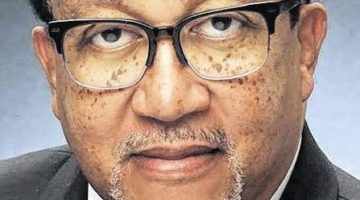The debate raging about Critical Race Theory (CRT), aka, the truth, has kicked in the door – deepening the divides in the country, and has driven some to violence. Why? We have become less of a Republic; we actually harbor many nations. There is tangible evidence of unequal justice. And there is no unity. (See the Pledge of Allegiance).
The revolution is in full force; being waged along ideological, cultural, racial, and economic fronts. People – on all sides – are angry. Increasing talk about a ‘civil war’ includes ominous warnings about how narrowly an insurrection was avoided. (The election of Joe Biden has afforded a little breathing room to come to terms with where this country is headed) We are barreling toward the arc of a 400-year-old comeuppance.
I said 400 years, because I believe that the history of this nation begins in 1619 – when the first documented Africans landed on the shores of Virginia, as cargo, later reclassified as property, hence chattel slaves. I am not discounting the Blacks who were already here (before Columbus), but I’m focused on those who were part of the founding of this country.
There is a mountain of founding papers which document the development of the underlying principles governing the colonies (states’ rights becoming pre-eminent), and the subsequent binding of those states into a united republic – over time – only after the first Civil War. But the first notions of defining people as property, and the protections thereof, were institutionalized in the practice of using free labor (indentured servants, slaves) to support the new nation’s economy.
That is the truth.
And now, that truth is being denied, redefined, and/or forbidden to be taught because it undermines another one of the founding guiding principles, i.e., White supremacy, which is clearly spelled out in writing from day one of the new nation.
I listened to an interview recently on NPR where I heard this analogy: the debate about critical race theory is like being caught between The New York Times 1619 Project, described as “depressing,” and the Trump administration’s rebuttal: The 1776 Commission, described as a delusional false narrative.
The person interviewed suggested a return to teaching Civics, i.e., the study of how to be a citizen of this country, how to think critically about our history, how to talk about uncomfortable truths, etc., instead of having to choose between the two (polarizing) reports, Can we?
First, a little perspective.
The 1619 Project, published in August 2019, was awarded the Pulitzer Prize for Journalism. The Project is a series of poems, essays, research, and opinions, that reflect on the experience of Blacks in America over the 400 years since arrival.
The event does not get included in most history books used in public schools. Is it taught in any schools?
The 1619 Project immediately began to enjoy a measure of support and its content was adopted into several public school curricula. Its defenders lauded its truth-telling premise, and many historians welcomed it. But not all.
An immediate backlash grew amongst folk wedded to the country’s origin story and the accompanying myths about the founding fathers. That story always leaves out or distorts the historical impact of Blacks in this country – since 1619.
That origin story begins in 1776 when the colonies rebelled against the British crown and won independence from tyranny and taxes – a narrative taught in every US history book. But we know that in the beginning, the states were not united, that when the Louisiana Purchase and the Republic of Texas added vast amounts of territory to the country, debates about slavery grew, and that there was a civil war between the states.
It is undeniable, yet still disputed in some history books, that the primary reason for the wars between the states was to maintain and/or expand slavery.
For instance, in a new book, “Forget the Alamo,” the authors retell the story of the infamous Alamo last stand, and busts the myth of the herowarriors: David Crockett, James Bowie, William Travis, et al. As it turns out, they were just men who were more interested in a land grab than glory, and that their war against Mexico (anti-slavery) was to gain the right to uphold slavery in that territory.
Which histories do you recite?
Having our history told, recognized, and honored is critical. The 1619 Project is a great beginning.
About teaching Civics: The golden rule was posted in my elementary school classroom. It read, “Do unto others as you would have others do unto you.”
Period. Toniwg1@gmail.com










No Comment